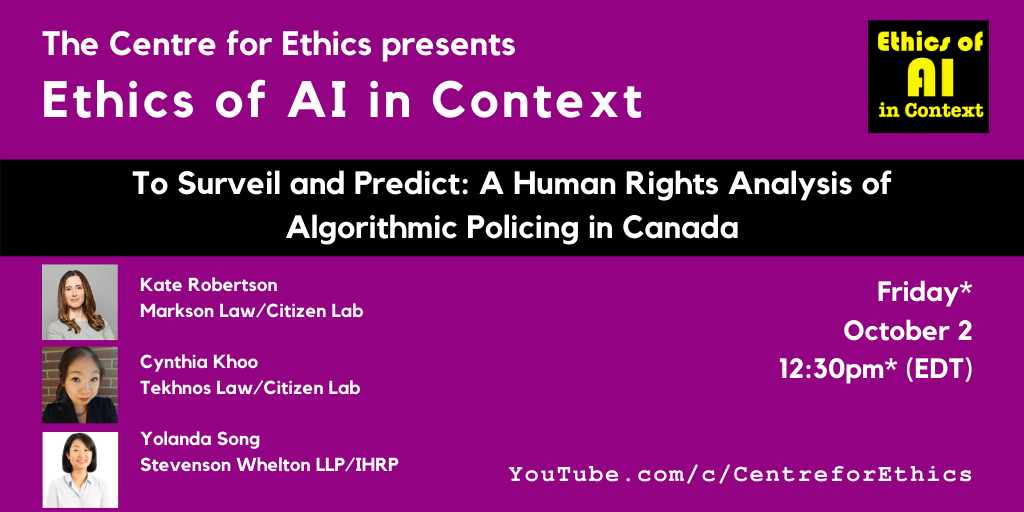
To Surveil and Predict: A Human Rights Analysis of Algorithmic Policing in Canada
A collaboration between the International Human Rights Program and the Citizen Lab at the University of Toronto, To Surveil and Predict: A Human Rights Analysis of Algorithmic Policing in Canada examines algorithmic technologies that are designed for use in criminal law enforcement systems in Canada. Algorithmic policing is an area of technological development that, in theory, is designed to enable law enforcement agencies to either automate surveillance or to draw inferences through the use of mass data processing in the hopes of predicting potential criminal activity. The report finds that the use of algorithmic policing technologies by law enforcement can raise many potential constitutional and civil liberties violations under the Canadian Charter of Rights and Freedoms and international human rights law. In their presentation, the authors of this report discuss their findings, including what steps governments and the public in Canada should consider taking in light of human rights dangers at stake.
► please register here
This is an online event. It will be live streamed on the Centre for Ethics YouTube Channel on Friday, October 2. Channel subscribers will receive a notification at the start of the live stream. (For other events in the series, and to subscribe, visit YouTube.com/c/CentreforEthics.)
Kate Robertson
Markson Law
Citizen Lab Research Fellow
Cynthia Khoo
Tekhnos Law
Citizen Lab Research Fellow
Yolanda Song
Stevenson Whelton LLP
IHRP Research Associate
Fri, Oct 2, 2020
12:30 PM - 01:45 PM
Centre for Ethics, University of Toronto
200 Larkin
